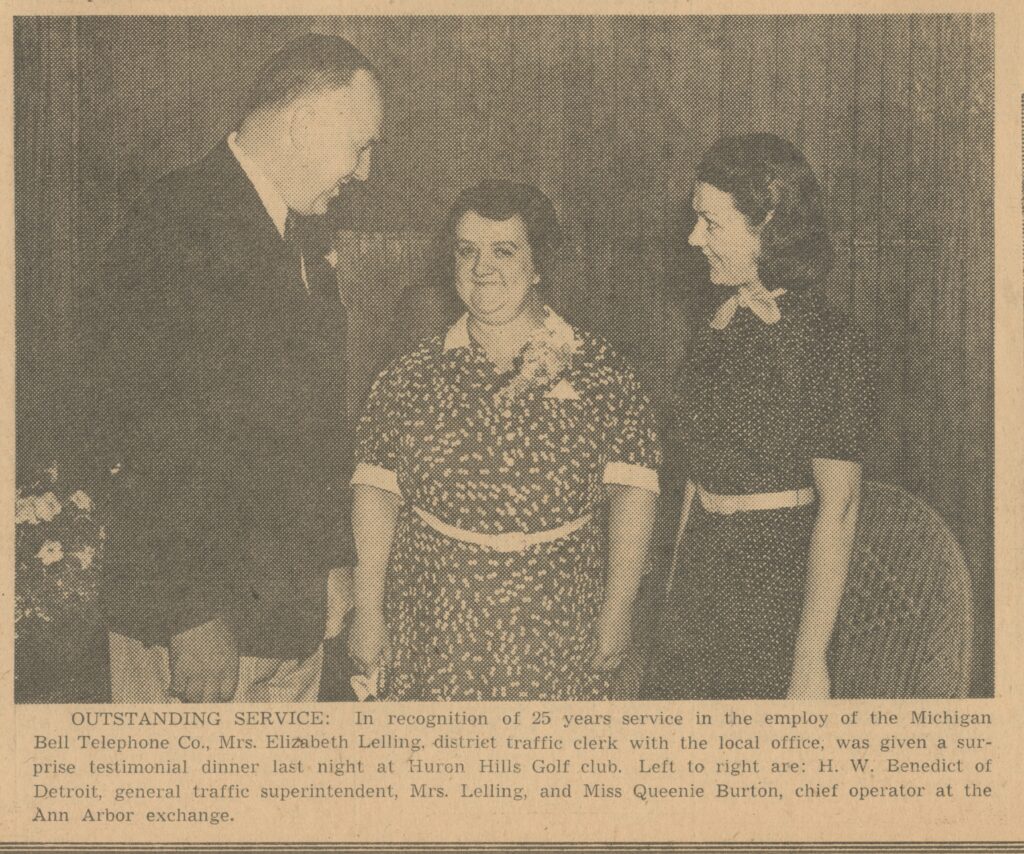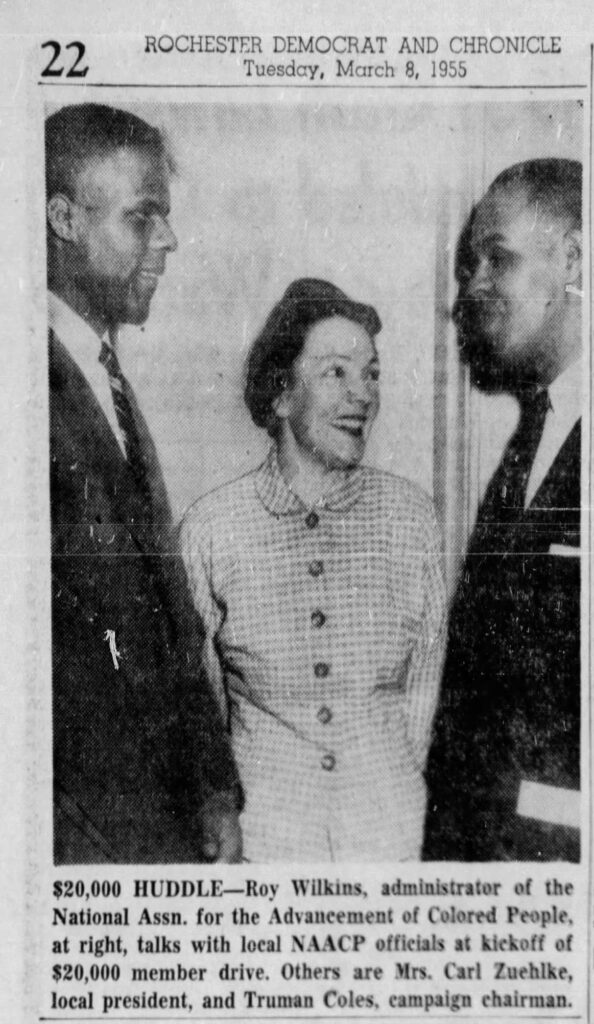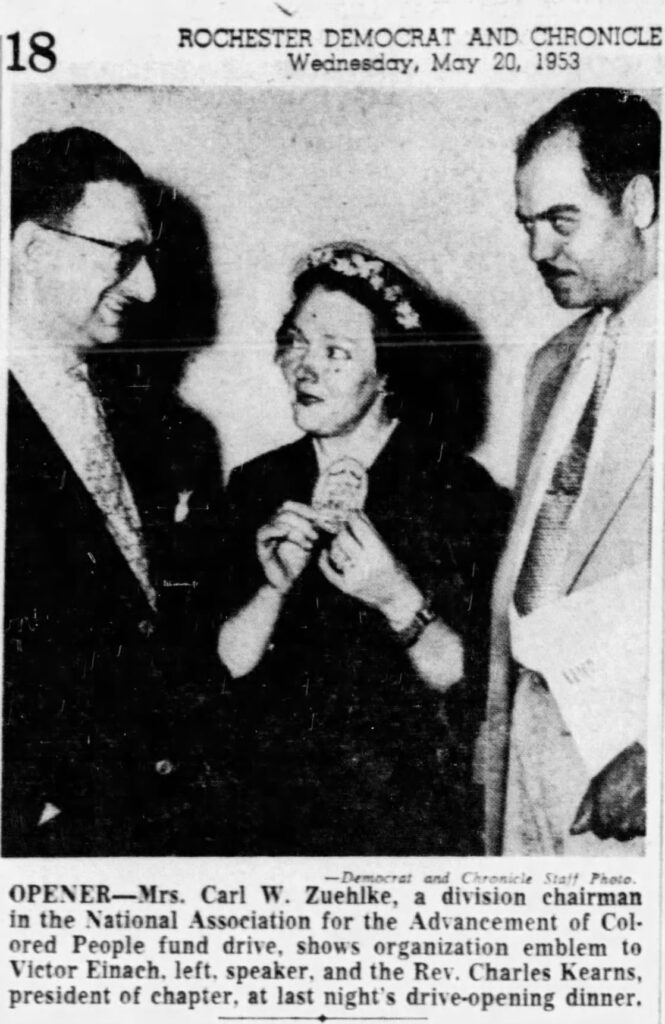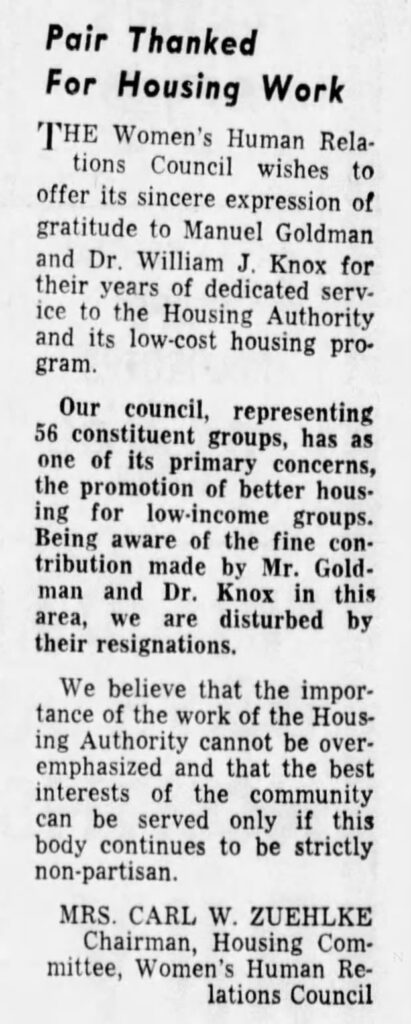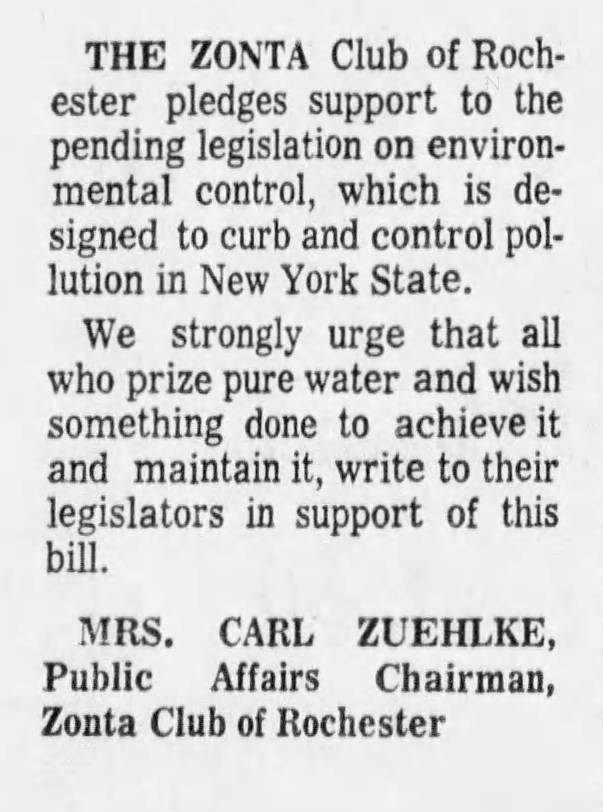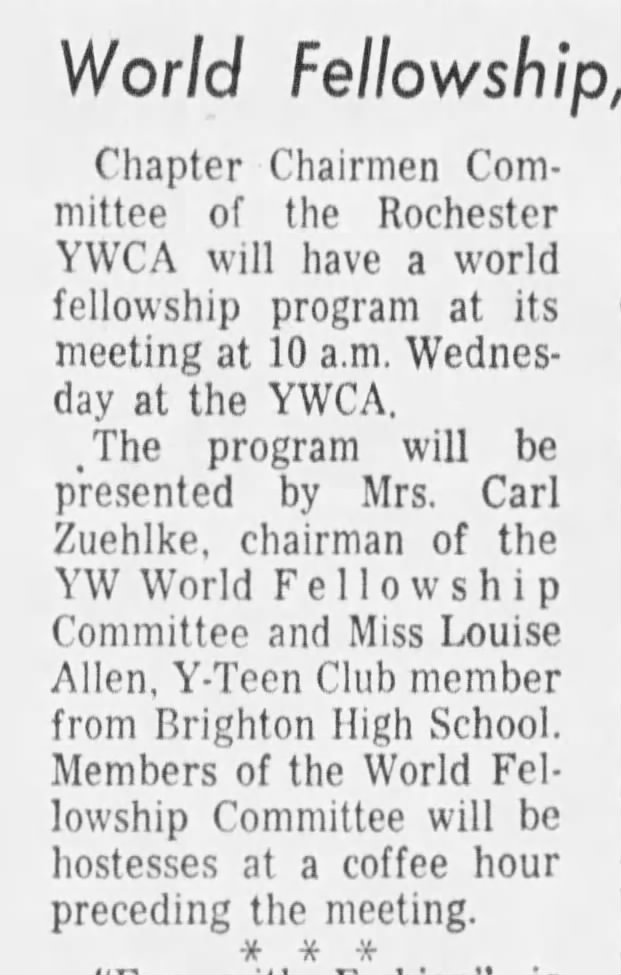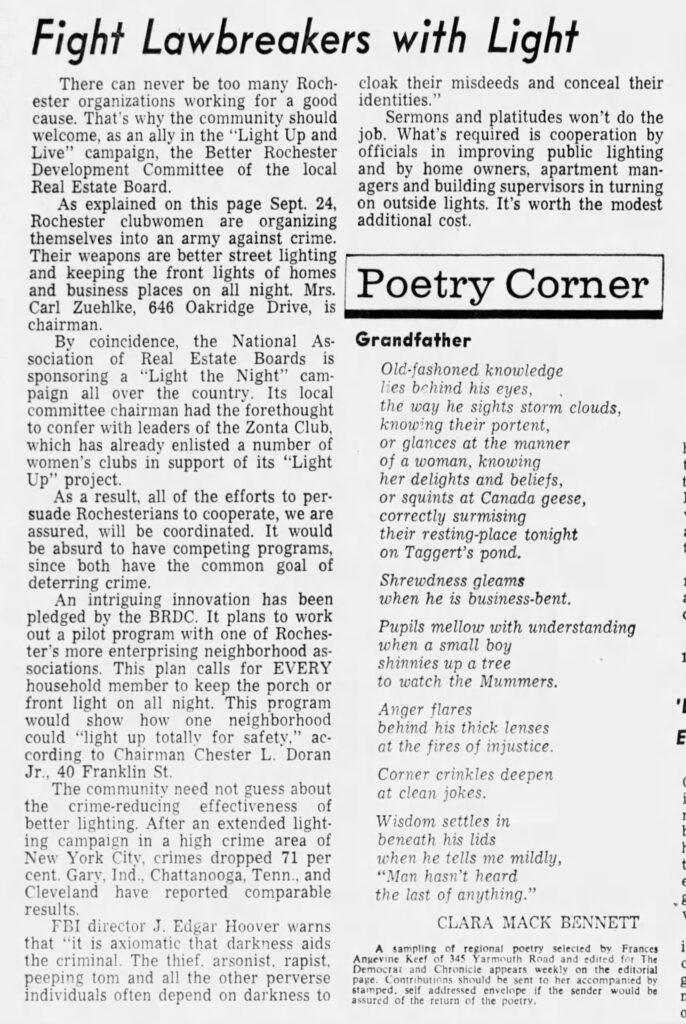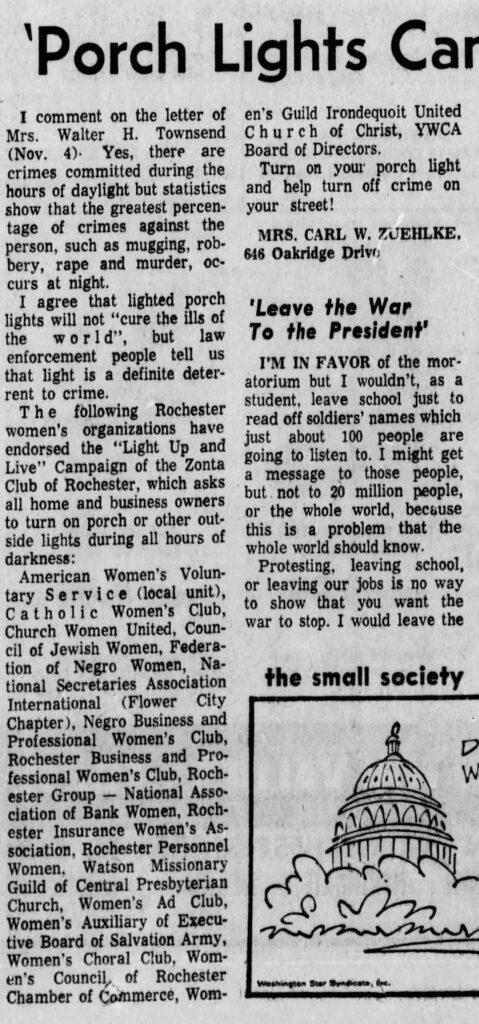Queenie Zuehlke was once a name lost in history; any Google search yielded minimal results and her past was a mystery to uncover. However, after a trip and deep dive into historical research, Queenie’s story soon came to light.
Queenie is honored at Literacy Rochester for founding the organization in 1964, but she did so much more than be a literacy pioneer. Queenie was a leader, inspiration, and change-maker to all the groups she was involved in. She was an accomplished and forward-thinking woman of her time. From being president of the NAACP, chairwoman of several women’s advocacy groups, and assistant director of a local PTA. Join us as we explore the lasting impacts of Queenie’s efforts during her lifetime.
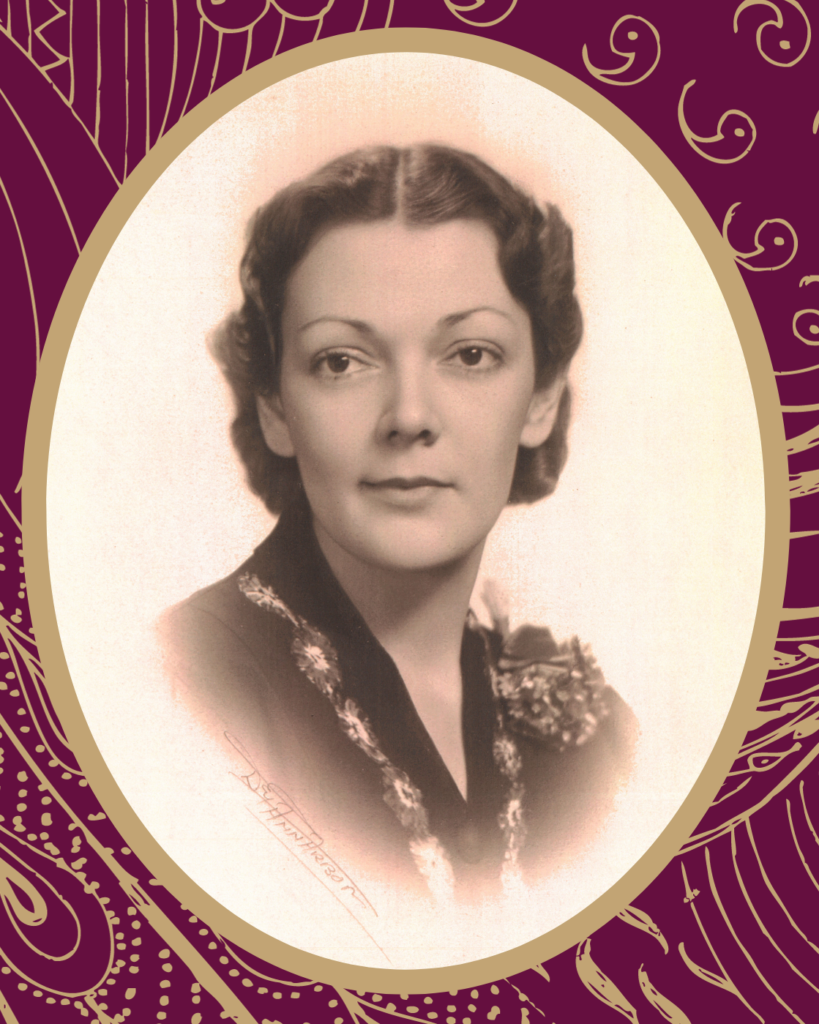
Early Life
Queenie Burton was born in 1908 to parents Stephen and Lottie Burton. She had a sister named Ruth who was two years older than her.
In 1925, Queenie graduated from Lansing High School. The yearbook from that year tells readers that Queenie was involved in several school clubs including Latin Club, the Senior Play, the Girls Reserves, and Euripidean Society. Specifically, the Euripidean Society was a pre-dominantly female literacy club that looked into several areas of literacy. During the 1924 school year, the club was particularly interested in American literature and the newspaper. Her association with this literacy club is perhaps an indication of loving literacy since a young age.
After Graduation
After graduation, Queenie started working at the Michigan Bell Telephone Company (MBTC), specifically in the traffic department.
In 1928, Queenie married her first husband, Don Catlin. During this time, Queenie became an Operator at the Lansing station of the MBTC. By the early 1930s, Queenie had moved up to be a Chief Operator. For unknown reasons, Queenie and Don separated in 1933. Queenie lived with her sister, Ruth, in Ann Arbor, Michigan for some time after the separation.
According to the 1940s census, Queenie was still a Chief Operator at the MBTC and was renting an apartment for $45/month in Ann Arbor, Michigan (what a deal!).
Move to Rochester
In 1944, Queenie married Dr. Carl Zuehlke and had two sons before moving to Rochester in 1948. Carl’s brother, Arthur, had been living in Rochester for some time and established roots here. Queenie and Carl decided to move into a home in Irondequoit.
NAACP
One of the first local organizations that Queenie was involved in was the NAACP. Queenie started to be active in the organization in 1948, when she moved to Rochester. By 1953, she had become a division chairwoman and helped the organization flourish.
A year later on June 1, 1954, Queenie was elected president of the local chapter and held a one year term. During her term, there were roughly 1,800 members in the chapter. Furthermore, Queenie made strides to reduce housing discrimination
Also, while Queenie was president, she encouraged Dr. Walter Cooper to get involved in the NAACP. Dr. Cooper had known Queenie’s husband, Carl, from Eastman Kodak and meet Queenie through this connection. Their interaction led to Dr. Cooper to get involved in the NAACP and later became the chairman of the education committee.
PTA & Schools
Queenie also found time to be involved in local schools through PTA’s. From 1957 to 1959, Queenie had the title of Assistant Director of the Monroe County Schools in the Genesee Valley District PTA. Later, she would become Coordinator of Assistant Directors.
In addition, Queenie also held a chair position in the Iroquois Area PTA and later became president in 1957. She would become an honorary life member.
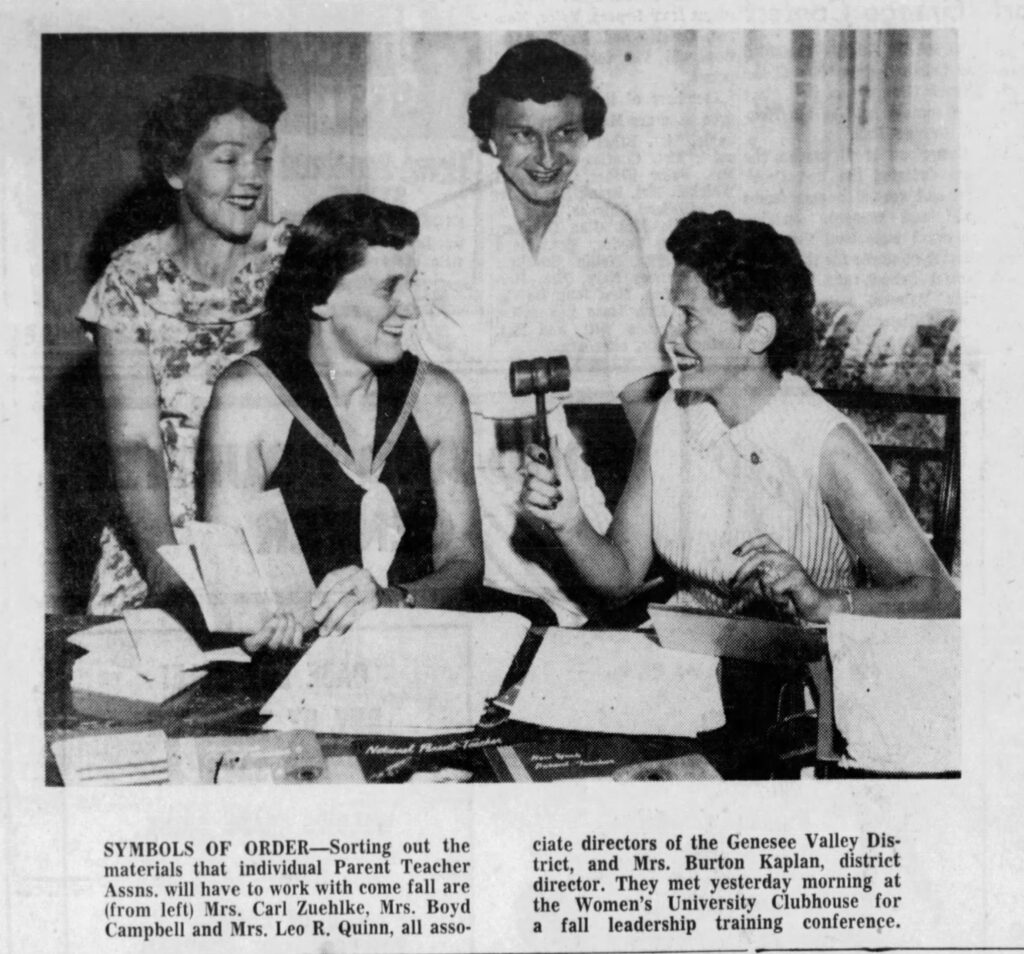
Women & Human Rights Advocacy
During the 1960s, Queenie held leadership positions in several local women and human rights advocacy groups.
- Women’s Human Relation Committee
Queenie was a part of the Women’s Human Relation Committee and had been active in the group since the early 1950s. In 1960, she would be president for one year and then transitioned to be the promotions coordinator in 1961. - Young Women’s World Fellowship Committee; Chairwoman in 1961
- Public Affairs Chairwoman of the Zonta Club until 1970
Queenie always wrote pieces in local newspapers to share the events of the organizations she was involved in or voice her opinion on current issues. She was a prominent local figure.
Literacy
After years of establishing roots and being involved in the community, Queenie saw a growing illiteracy problem in her own community and decided to take action. In 1963, Queenie began to coordinate with Ruth Colvin, who had founded a literacy program in Syracuse just a year prior. And, by December 1963 Rochester had its first literacy program called Each One Teach One sponsored by Church Women United and with Queenie as chairwoman.
Queenie took the initiative to gather interested folks by going door to door and looking for people who wanted to read.
After the launch of Each One Teach One, Queenie spent the next couple of years going around to several other local organizations giving speeches on the literacy program and recruiting volunteers. These groups included the Women’s Society of Christian Service, the Syracuse Alumnae Club of Rochester and the Greater Rochester Mothers of Twins Club.
Zonta Club
One of the final projects that Queenie worked on was the 1969 “Light up and Live” campaign pioneered by the local Zonta Club. This initiative urged the city to provide more street lighting in hopes of lessening crime in the area. The Zonta club encouraged other women’s organizations to join their efforts and soon several organizations were petitioning for this initiative. The Democrat and Chronicle deemed the campaign a “feminine siege” on the public lighting issue.
Lasting Impact
Queenie passed away unexpectedly on April 22nd, 1970. Her legacy in the Rochester community still resonates to this day as the once small literacy program has grown substantially. Literacy Rochester continues to support the original mission by helping those in the community learn essential literacy skills. Literacy over the years has expanded to include not just reading and writing, but also math and digital literacy skills.
Want to hear more stories? Over the years, thousands of subscribers received updates about the organization through Litbits. We welcome new LitBits subscribers! Sign up now – Click Here or refer to the “Contact Information” section on this page.
Sources:
Democrat and Chronicle
Litbits
Lansing State Journal
Ann Arbor Library
Literacy Rochester Archives
The Mouthpiece (MBTC)
Sharing is caring!


